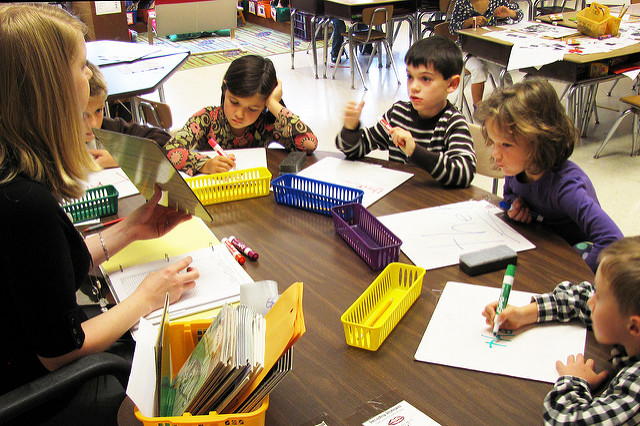Modern educators do not deny that thinking skills, social skills, and emotional skills play a role in children’s learning. Executive functions are particularly important to the education of children with special needs. Children diagnosed with ADHD, learning disabilities, and autism spectrum disorders have weaknesses in their executive functioning skills. These children need to be taught skills such as organization, planning, and time management in order to perform in the classroom. Unfortunately, many educators still are not fully cognizant of what exactly executive functions are, how they can identify these concerns in the classroom, how they impact academic learning, and what they can do to help kids who have these executive functioning weaknesses.
What are executive functions?
Executive functions are brain-based skills that help us manage our thoughts, feelings, and behaviors. Executive functions help us with “what to do” skills such as starting tasks, paying attention, persevering, and remembering. Executive functions also help with “how to do” skills such as planning, organizing, shifting strategies, and managing the time.
Additionally, executive functions help us manage our perceptions, thoughts, actions, and social interactions. In the past, executive functions with thought to be fixed capacities of the brain. In the past, it was believed that an individual was limited by their brain’s capacity for executive functions such as working memory, organization, and cognitive flexibility. New thinking, based upon decades of research on the neuroplasticity of the brain, views executive functions as a set of skills that can be modified, improved,and generalized. One particularly useful conceptualization of executive functions was developed by two psychologist, Peg Dawson and Richard Gere in their book Executive Skills in Children and Adolescents. This model describes 11 different executive skills that play a role in the classroom.
It’s easy to see how each of these skills can play a role in a child’s academic support:
Flexibility – the ability to adapt, improvise and shift approaches. Helps when a child makes mistakes in homework.
Goal directed persistence – the ability to persevere with task that require sustained effort.help spa learning a new and difficult subject.
Metacognition – the ability to self monitor and observe. Helps a student in correcting their own work.
Organization – the ability to use a systematic approach to achieve a goal. Helps to know what homework to do and what materials are needed.
Planning – the ability to develop a set of strategies in order to accomplish a goal. Assists helps with long-term projects.
Regulation of affect – the ability to manage one’s feelings effectively in decision-making and task completion. Helps when dealing with frustrating and difficult math assignments.
Response inhibition – The ability to stop or delay an action rather than display pulse of behavior. Helps in dealing with peers on the playground.
Sustained attention – the ability to maintain one’s focus and attention in the presence of distractions. Helps in a noisy classroom with concentration in a noisy classroom.
Task initiation – the ability to get started on a task without procrastination. Helps in getting work done homework done it without delay.
Time management – the ability to respond to things in a timely fashion. Helps to turn in work before deadlines.
Working memory – the capacity to remember important information and to apply it to a task at hand. Helps with reading comprehension, and recall of homework assignments.
Classroom teachers who are able to recognize when one of their students is struggling with executive functions are better equipped to help these kids learn. Given the compelling evidence that executive functioning skills are more important than IQ in determining school success, it is crucial that teachers learn more about executive functions in the classroom. We need teachers (and parents) to help kids generalize the thinking skills they are already learning in the games they play.
We invite you to learn more about executive functions as thinking skills, the science of play, and the science behind LearningWorks for Kids. Are you an educator working with kids who have learning differences? What strategies have you found to be most effective? Tell us your success stories below or come talk to us on Facebook!
Featured image: Flickr user woodleywonderworks




